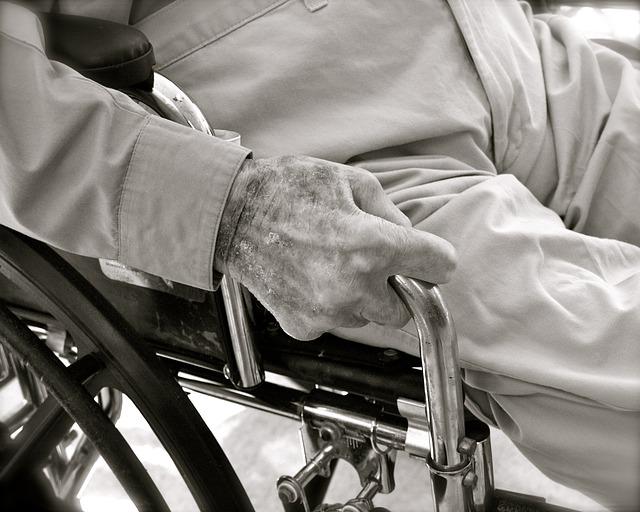In the ever-evolving field of medicine, the importance of continuing education cannot be overstated. As healthcare professionals, we must adapt to new technologies, research findings, and best practices in order to provide the best care for our patients. Continuous learning is not just a requirement to maintain our licenses, but a vital tool to enhance our skills, stay current with industry trends, and ultimately improve patient outcomes. In this article, we will explore the significance of continuing medical education in the practice of medicine and why it is essential for every healthcare provider to prioritize lifelong learning.
The Benefits of Lifelong Learning in Medicine
Lifelong learning in medicine is crucial for healthcare professionals to stay up-to-date with the latest advancements, research, and practices in the field. Continuing medical education plays a significant role in improving patient outcomes, enhancing clinical skills, and expanding medical knowledge. By participating in ongoing education, physicians can provide better care to their patients and contribute to the overall improvement of healthcare delivery.
One of the key benefits of continuing medical education is the opportunity for healthcare professionals to deepen their expertise in specific areas of medicine. Through specialized courses, workshops, and conferences, doctors can enhance their skills in various medical specialties such as cardiology, oncology, or pediatrics. This specialized knowledge allows physicians to deliver more personalized and effective treatment plans to their patients, ultimately leading to better health outcomes.
Furthermore, ongoing education in medicine fosters collaboration among healthcare professionals, encourages innovation, and promotes a culture of continuous improvement. By engaging in discussions, sharing experiences, and learning from one another, doctors can broaden their perspectives and adopt new approaches to patient care. This collaborative environment not only benefits individual practitioners but also contributes to the advancement of medical science as a whole.

Enhancing Patient Care through Continuous Medical Education
In today’s ever-evolving healthcare landscape, continuing medical education (CME) is crucial for healthcare professionals to stay up-to-date with the latest advancements in their field. By engaging in continuous learning opportunities, healthcare providers can enhance their knowledge and skills, ultimately leading to improved patient care.
<p>One of the key benefits of participating in CME activities is the opportunity to <strong>expand clinical knowledge and expertise</strong>. Whether it's learning about new treatment modalities, diagnostic techniques, or patient management strategies, CME allows healthcare professionals to stay current with best practices in medicine.</p>
<p>Furthermore, ongoing education can <strong>enhance patient outcomes</strong> by ensuring that healthcare providers are equipped to deliver high-quality, evidence-based care. By staying informed about recent research findings and guidelines, clinicians can tailor their practice to meet the evolving needs of their patients.</p>
Key Strategies for Successful Continuing Education in Healthcare
Continuing education in healthcare is crucial for healthcare professionals to stay current with the ever-evolving industry trends, advancements in technology, and new medical practices. As such, incorporating key strategies for successful continuing education is essential for healthcare professionals to enhance their knowledge and skills to provide the best possible care to their patients.
One effective strategy for successful continuing education in healthcare is to prioritize relevant and high-quality educational opportunities. Healthcare professionals should seek out courses, workshops, conferences, and other forms of education that are directly applicable to their practice and specialty. By focusing on learning opportunities that are tailored to their specific needs and interests, healthcare professionals can maximize the impact of their continuing education efforts.
Another key strategy for successful continuing education in healthcare is to engage in active learning and practical application of knowledge. Healthcare professionals should not only passively consume information but also actively participate in discussions, case studies, simulations, and hands-on training. By applying their learning in real-world scenarios, healthcare professionals can better retain information and improve their clinical skills, ultimately benefiting their patients.

Incorporating Evidence-Based Practices into Ongoing Medical Training
Medical professionals have a responsibility to stay up-to-date on the latest evidence-based practices in order to provide the best possible care for their patients. Continuing medical education plays a crucial role in incorporating these practices into ongoing medical training. By participating in training sessions, workshops, and conferences, healthcare providers can enhance their knowledge and skills, ultimately improving patient outcomes.
One benefit of continuing medical education is the opportunity to learn from experts in the field. These instructors can share their knowledge and expertise with attendees, providing valuable insights and best practices that can be implemented in day-to-day practice. Additionally, attending these events allows healthcare professionals to network with colleagues from different specialties, fostering collaboration and the exchange of ideas.
| Benefits of Continuing Medical Education: |
| 1. Stay up-to-date on evidence-based practices |
| 2. Learn from experts in the field |
| 3. Network with colleagues |
Ultimately, through continuing education is essential for ensuring that healthcare professionals are providing the highest level of care to their patients. By staying informed and continually expanding their knowledge base, medical professionals can make informed decisions that lead to better patient outcomes and ultimately improve the quality of healthcare delivery.
As we wrap up our exploration of the importance of continuing medical education in practice, it’s clear that staying up-to-date on the latest advancements and best practices is vital for providing the highest level of care to our patients. By embracing opportunities for lifelong learning and professional development, healthcare professionals can not only enhance their skills and knowledge, but also improve patient outcomes and overall quality of care. So, let’s commit to making continuing medical education a priority in our practice, and strive to always be the best healthcare providers we can be. Let’s never stop learning and growing, because that’s what sets us apart as dedicated and compassionate healthcare professionals. Thank you for joining us on this journey of discovery and reflection.
